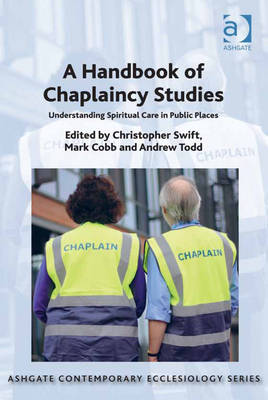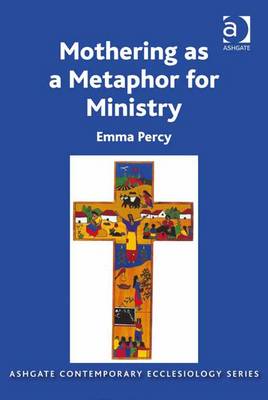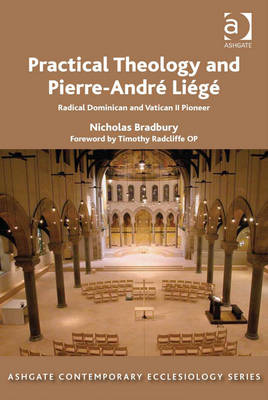Ashgate Contemporary Ecclesiology
3 total works
A Handbook of Chaplaincy Studies
A Handbook of Chaplaincy Studies explores fundamental issues and critical questions in chaplaincy, spanning key areas of health care, the prison service, education and military chaplaincy. Leading authors and practitioners in the field present critical insight into the challenges and opportunities facing those providing professional spiritual care. From young men and women in the military and in custody, to the bedside of those experiencing life's greatest traumas, this critical examination of the role played by the chaplain offers a fresh and informed understanding about faith and diversity in an increasingly secular society.
An invaluable compendium of case-studies, academic reflection and critical enquiry, this handbook offers a fresh understanding of traditional, contemporary and innovative forms of spiritual practice as they are witnessed in the public sphere. Providing a wide-ranging appraisal of chaplaincy in an era of religious complexity and emergent spiritualities, this pioneering book is a major contribution to a relatively underdeveloped field and sets out how the phenomenon of chaplaincy can be better understood and its practice more robust and informed.
Drawing together original research which weaves together ideas from theology, philosophy, feminism and writing on mothering and child development, Emma Percy affirms and encourages aspects of good practice in ministry that are in danger of being overlooked because they are neither well-articulated nor valued. Offering a fresh look at parish ministry, this book uses a maternal metaphor to provide an integrated image of being and doing.
The metaphor of mothering is used to explore the relational aspect of parish ministry which needs to value particularity and concrete contingent responsiveness. Percy suggests virtues that need to be cultivated to guard against the temptations to intrusive or domineering styles of care on the one hand or passive abnegation of responsibility on the other. Parish ministry cannot be understood in terms of tangible productivity; different ways of understanding success and evaluating priorities need to be developed. The book suggests ways of being `good enough' clergy who can find the right balance between caring for people and communities whilst encouraging and acknowledging the maturity of others.
Pierre-Andre Liege, one of the foremost French theologians of the 20th century, influenced John XXIII and Paul VI, and sat on Vatican II committees with both the future John Paul II and Benedict VI. Fifty years on from Vatican II is a good time to remember the decade of dramatic struggle and pioneering work that preceded it, and review what it accomplished.
This book explores the life and work of Pierre-Andre Liege, presenting it to an English speaking readership for the first time. Discussing the impact and profound challenges Liege's work raises for spirituality and church life today, Bradbury tackles issues including: the organisation of parish life rooted in theological criteria; cradle to grave corporate Christian formation; a compelling vision of what the church is for and why, and how should this be expressed in practice. Bradbury argues that for faith to match real life, the church today needs to let go of much baggage, align its talk to its action, and radically re-examine the question of what the church needs to do to conform to the Gospel. This book takes critical issues confronting practical theology and the church, breaking them open in a lively and accessible style.


